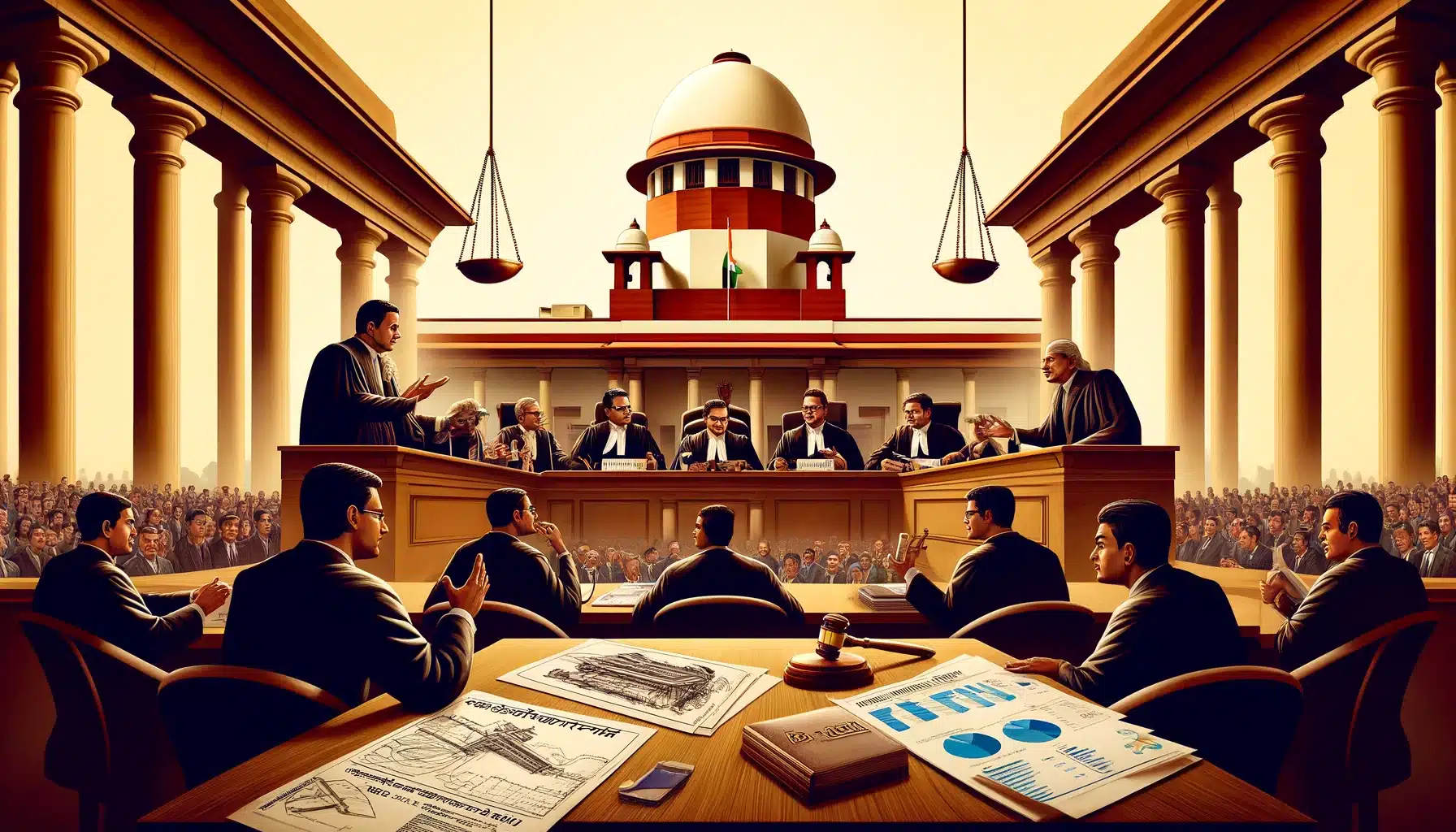A petition has been filed in the Supreme Court by Anjale Patel and Chhaya Mishra, represented by advocates Sanjeev Malhotra and Kunwar Sidharth, requesting the immediate formation of an expert committee to evaluate the feasibility of three new criminal laws: Bharatiya Nyaya Sanhita (BNS), Bharatiya

AI legal research and drafting tool
A petition has been filed in the Supreme Court requesting the immediate formation of an expert committee to evaluate and determine the feasibility of the three new criminal laws.
The petition filed by Anjale Patel and Chhaya Mishra, represented by advocates Sanjeev Malhotra and Kunwar Sidharth also requested the Supreme Court to stay the operation and implementation of the three new criminal laws.
The new laws Bharatiya Nyaya Sanhita (BNS), Bharatiya Nagarik Suraksha Sanhita (BNSS), and Bharatiya Sakshya Adhiniyam (BSA) are scheduled to replace the Indian Penal Code, the Code of Criminal Procedure, and the Indian Evidence Act, respectively, starting July 1, 2024.
The petitioners have argued that these laws are confusing, largely replicate existing laws, increasing the burden on lawyers, and were passed without proper parliamentary debate. They also raise concerns about unclear definitions and potential impacts on legal practice and citizen rights.
The petition stated “Bharatiya Nyaya Sanhita (BNS) retains most offences from the Indian Penal Code (IPC) and defines petty organised crime as an offence. This includes vehicle theft, pickpocketing, selling public examination question papers, and other forms of organised crimes committed by gangs,”
The petition highlighted that while BNS safeguards individuals with mental illness from prosecution, it excludes those with mental retardation from this protection, potentially subjecting them to prosecution. Additionally, sedition has been replaced by a new offence targeting acts that threaten India’s sovereignty, unity, and integrity. Moreover, Terrorism is also addressed as a distinct offence under the BNS.
The Bharatiya Nagarik Suraksha Sanhita (BNSS) allows up to 15 days of police custody, which can be authorised in parts during the initial 40 or 60 days of the 60- or 90-day period of judicial custody. The petition argues that this provision may result in the denial of bail for the entire period if the police have not utilised the full 15 days of custody. The petition cited the recent Supreme Court case of V. Senthil Balaji v. State, where the Court addressed the issue of whether the 15 days of police custody should be limited to the initial 15 days of remand or if it could be extended over the entire investigation period of 60 or 90 days, as applicable, and referred this question to a larger bench for further consideration. The new bill has amended the provisions related to detention, police custody and the use of handcuffs which raises concerns.
The Bharatiya Sakshya Adhiniyam (BSA) reclassifies electronic records from secondary to primary evidence. It broadens the scope of electronic evidence to include data stored in semiconductor memory and communication devices like smartphones and laptops.
However, the petition noted a concern regarding the lack of safeguards to prevent tampering with electronic records during search, seizure, or investigation processes under the BSA.
Further, the petitioners argued that the Bills were passed without proper parliamentary debate since many MPs were under suspension at the time. Specifically, when the Bills were passed in the Lok Sabha on December 20, 141 opposition MPs from both houses were suspended. This lack of debate meant that the Bills’ elements were not adequately challenged or discussed.
The petition also highlighted a concern raised by former Chief Justice of India NV Ramana in 2021 about the enactment of laws without proper Parliamentary debates.
“Parliamentary debate is a fundamental part of democratic lawmaking. In parliament, members debate bills before they vote on them. Because debates are public, they provide Members of Parliament (MPs) an opportunity to represent the views of constituents on the floor and give voice to voters’ concerns.”





